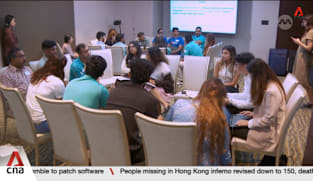Budget 2024 debate: Wan Rizal on future-proofing Singapore’s workforce
From early childhood education to lifelong learning, the measures in the Budget are intricately linked in the common goal to build a resilient, inclusive and forward-looking Singapore, said MP Wan Rizal. Speaking in Parliament on Monday (Feb 26), he pointed out that the programme to level up skills is a “visionary” initiative aimed at future-proofing Singapore’s workforce. The substantial increase in SkillsFuture Credits highlights the imperative of ongoing training and upskilling in navigating the complexities of a contemporary job market, he added. In this era of relentless change and disruption, safeguarding employability through strategic investments in skills development and productivity enhancement is a paramount concern, he said. He also raised concerns that individuals need guidance on the right programme while businesses want assurances that the training of individuals would benefit the company. He stressed the need to continue to engage industry leaders and businesses and shift towards an “outcome-based training model”, where the success of training programmes is measured by the real value and tangible outcomes, such as employment rates, career progression and salary increments. He also called for innovative ways to make the courses and programmes more flexible and accessible to meet the diverse needs of learners, who may have to balance training with work and family commitments.
From early childhood education to lifelong learning, the measures in the Budget are intricately linked in the common goal to build a resilient, inclusive and forward-looking Singapore, said MP Wan Rizal. Speaking in Parliament on Monday (Feb 26), he pointed out that the programme to level up skills is a “visionary” initiative aimed at future-proofing Singapore’s workforce. The substantial increase in SkillsFuture Credits highlights the imperative of ongoing training and upskilling in navigating the complexities of a contemporary job market, he added. In this era of relentless change and disruption, safeguarding employability through strategic investments in skills development and productivity enhancement is a paramount concern, he said. He also raised concerns that individuals need guidance on the right programme while businesses want assurances that the training of individuals would benefit the company. He stressed the need to continue to engage industry leaders and businesses and shift towards an “outcome-based training model”, where the success of training programmes is measured by the real value and tangible outcomes, such as employment rates, career progression and salary increments. He also called for innovative ways to make the courses and programmes more flexible and accessible to meet the diverse needs of learners, who may have to balance training with work and family commitments.



















